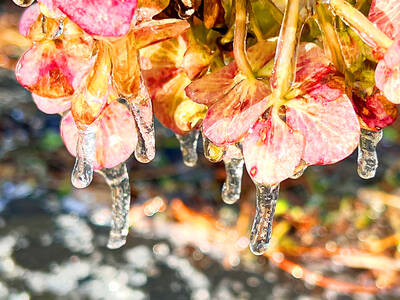Chinese Nationalist Party (KMT) presidential candidate Hung Hsiu-chu (洪秀柱) yesterday reiterated the “common-senseness” of the so-called “1992 consensus” when asked about a US academic’s expectation that Chinese President Xi Jinping (習近平) would demand that the US endorse the “one China” policy.
In Kaohsiung, Hung re-emphasized the importance of the “1992 consensus,” a term former Mainland Affairs Council chairman Su Chi (蘇起) admitted making up in 2000 that says that both sides of the Taiwan Strait recognize that there is “one China,” but have different interpretations of what “China” means.
“It is a fact that need not be challenged,” Hung said. “I do not understand why a person who wants to be president would want to avoid [the issue] and be reluctant to acknowledge common sense.”
Hung was responding to reporters’ questions about what the Chinese-language United Daily News — followed by other media outlets — reported as “a US academic calling on Taiwan’s next president to accept the ‘1992 consensus.’”
The United Daily News headlined the piece reporting on the views expressed by Bonnie Glaser, a senior adviser for Asia at the Center for Strategic and International Studies at a Washington conference as: “US think tank academic: The next Taiwan president would have to accept ‘1992 consensus.’”
Despite the headline, what Glaser said was actually speculation about what she expects Xi to say when he meets US President Barack Obama during a visit to the US later this month.
“I would guess that Xi’s message will be that the US should play a more proactive role to ensure that cross-strait stability exists, and that in order to have cross-strait stability, there must be an acceptance by Taiwan’s next president of the ’92 consensus and ‘one China,’ and that the US should play a role in ensuring that happens,” Glaser said at the conference.
The Democratic Progressive Party sent a transcript of Glaser’s report to the media in a bid to clarify the apparently misleading headline.
Regarding China’s three-day, live-fire drills in the Taiwan Strait that started yesterday, Hung said on Thursday that there is no need for Taiwan to “over-interpret” China’s military moves, as they are doing it somewhere “far from Taiwan” as part of “routine military exercises,” just as Taiwan had held drills earlier in the week.
She yesterday repeated her call for a relaxed attitude toward the Chinese drill, saying there is no need to over-interpret it as intimidation of Taiwan, but adding that many moves by the other side of the Taiwan Strait “would erode mutual trust,” adding that is why she upholds the “1992 consensus” and the space it creates for interaction.
However, when the “1992 consensus” reaches a bottleneck, “a cross-strait peace agreement, an agreement on military mutual trust and a discussion on Taiwan’s international participation should be seriously considered to ensure eternal cross-strait peace,” Hung said.

The Taipei City Government yesterday said contractors organizing its New Year’s Eve celebrations would be held responsible after a jumbo screen played a Beijing-ran television channel near the event’s end. An image showing China Central Television (CCTV) Channel 3 being displayed was posted on the social media platform Threads, sparking an outcry on the Internet over Beijing’s alleged political infiltration of the municipal government. A Taipei Department of Information and Tourism spokesman said event workers had made a “grave mistake” and that the Television Broadcasts Satellite (TVBS) group had the contract to operate the screens. The city would apply contractual penalties on TVBS

A new board game set against the backdrop of armed conflict around Taiwan is to be released next month, amid renewed threats from Beijing, inviting players to participate in an imaginary Chinese invasion 20 years from now. China has ramped up military activity close to Taiwan in the past few years, including massing naval forces around the nation. The game, titled 2045, tasks players with navigating the troubles of war using colorful action cards and role-playing as characters involved in operations 10 days before a fictional Chinese invasion of Taiwan. That includes members of the armed forces, Chinese sleeper agents and pro-China politicians

The lowest temperature in a low-lying area recorded early yesterday morning was in Miaoli County’s Gongguan Township (公館), at 6.8°C, due to a strong cold air mass and the effect of radiative cooling, the Central Weather Administration (CWA) said. In other areas, Chiayi’s East District (東區) recorded a low of 8.2°C and Yunlin County’s Huwei Township (虎尾) recorded 8.5°C, CWA data showed. The cold air mass was at its strongest from Saturday night to the early hours of yesterday. It brought temperatures down to 9°C to 11°C in areas across the nation and the outlying Kinmen and Lienchiang (Matsu) counties,

STAY VIGILANT: When experiencing symptoms of carbon monoxide poisoning, such as dizziness or fatigue, near a water heater, open windows and doors to ventilate the area Rooftop flue water heaters should only be installed outdoors or in properly ventilated areas to prevent toxic gas from building up, the Yilan County Fire Department said, after a man in Taipei died of carbon monoxide poisoning on Monday last week. The 39-year-old man, surnamed Chen (陳), an assistant professor at Providence University in Taichung, was at his Taipei home for the holidays when the incident occurred, news reports said. He was taking a shower in the bathroom of a rooftop addition when carbon monoxide — a poisonous byproduct of combustion — leaked from a water heater installed in a poorly ventilated